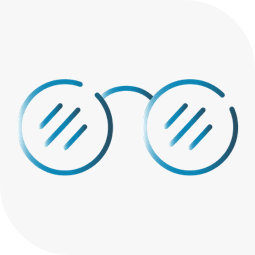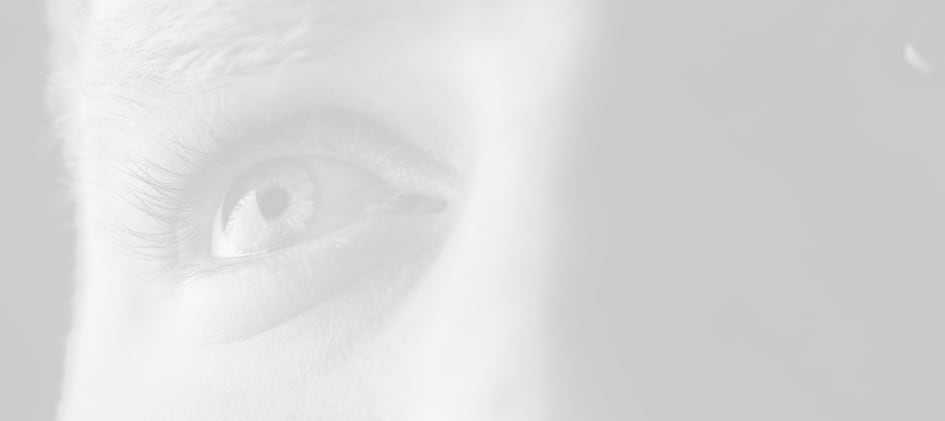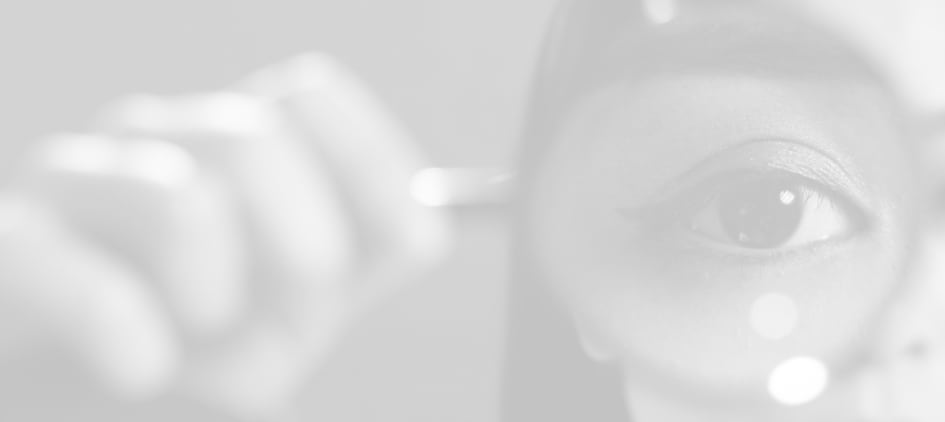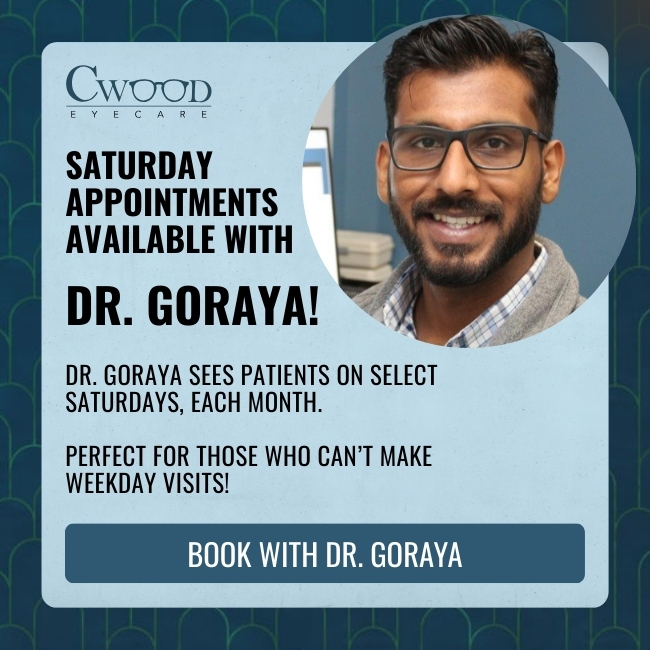If you’ve recently started wearing glasses or updated your prescription following an eye exam, someone may have mentioned, “Be careful. Glasses can make your eyes worse.” It’s a claim that, understandably, causes concern for many. None of us wants to do anything to harm our vision.
Before we go any further, let’s set the record straight: glasses don’t make your eyes worse. In fact, they can help prevent your vision from worsening in addition to helping you see clearly.
You may experience slight vision disturbances when adjusting to a brand-new prescription, which is entirely normal and typically temporary. But once your eyes adjust, your glasses will help your vision, not harm it.
Talk with your eye doctor if you have concerns about your glasses or prescription. We can offer tailored advice, especially if you are experiencing out-of-the-ordinary symptoms with new glasses.
Will Glasses Make My Eyes Worse?
The simple answer is no. Glasses don’t weaken your eyes or worsen your prescription.
Prescription eyeglasses are medical devices that can enhance clarity by correcting refractive errors like nearsightedness (myopia) or farsightedness (hyperopia). Glasses correction can provide clear vision to help you see comfortably and live without eye strain or discomfort.
The misconception that glasses make your eyes worse likely stems from how myopia naturally progresses over time. People may mistake the typical worsening of nearsightedness—especially during childhood or adolescence—for a side effect of wearing glasses.
The truth is that glasses neither cause nor accelerate the progression of refractive errors. Your prescription is designed to help improve your vision while addressing the unique needs of your eyes.
Understanding Myopia
Myopia is a common refractive error where the eyeball is shaped in a way that causes light to focus in front of the retina rather than directly on it. The shift in light focus causes distant objects to appear blurry while nearby objects stay clear.
Myopia often develops during childhood and can progress rapidly throughout the growing years.
Standard eyeglasses don’t “fix” the underlying shape of the eye. Instead, they use lenses to correct how light enters your eyes, helping distant objects appear clear and focused.
What’s the Goal of Myopia Control?
Slowing myopia progression is essential for long-term eye health. High levels of myopia are associated with an increased risk of serious complications later in life, such as retinal detachment, glaucoma, or macular degeneration.
Myopia control strategies, like specialized lenses, allow parents to take proactive steps to improve their child’s vision health. If you’re exploring options for managing nearsightedness in your child, consult your optometrist about whether myopia control lenses could be a good fit.
How Myopia Control Lenses Work
Standard lenses correct vision issues caused by myopia but don’t influence its progression. Myopia control lenses are designed with a dual purpose: to improve clarity and help slow down the worsening of the refractive error over time.
These special lenses alter how light enters the retina, effectively signaling the eye to reduce excessive growth, which is a key factor in myopia progression.
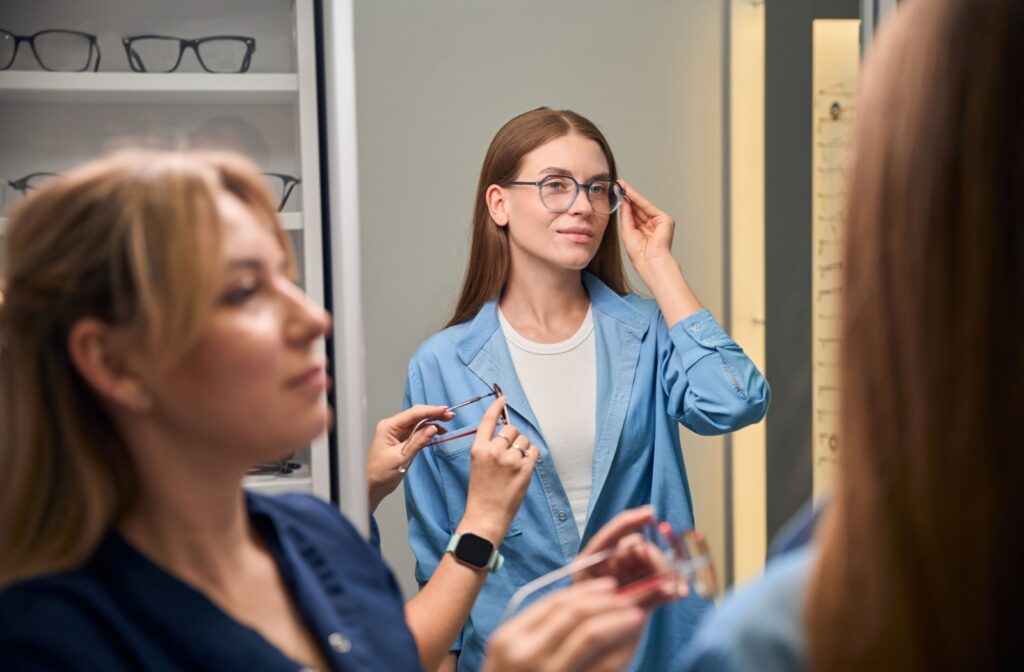
The Adjustment Period: Why Do My Glasses Feel Uncomfortable?
Nearsightedness may not be the only reason you or your child experiences minor visual disturbances or discomfort when you first wear glasses or get the prescription changed.
These disturbances are completely normal and typically resolve on their own. You might notice symptoms like:
- Headaches
- Dizziness
- Eye strain
- Feeling that objects appear warped or tilted (“fish bowl” effect)
These effects are caused by your eyes and brain adapting to new visual information. Your glasses don’t just change how your eyes focus; they also adjust how your brain interprets what you see. This is why it’s normal to feel a little “off” for a few days when adjusting to your glasses.
Tips for a Smooth Adjustment
If you’re struggling to adapt to your new glasses, here are a few simple tips to reduce discomfort. Remember, if symptoms persist or feel unbearable, you should check in with your optometrist to check your prescription or frame fit is correct.
Wear Them Regularly
Consistency is key. Wearing your glasses daily allows your eyes and brain to adjust more quickly. Always resist the urge to switch back and forth between your old and new glasses because this can make the process take longer.
Take Breaks
If your eyes feel strained, take short breaks throughout the day to rest them. The 20-20-20 rule is helpful—every 20 minutes, look at something 20 feet away for 20 seconds. Taking breaks is also an effective strategy to prevent eye strain if you spend extended time using digital screens.
Check Your Fit
Poorly fitted glasses can cause unnecessary eye irritation. Check if your frames sit comfortably on your face. Your glasses shouldn’t feel too tight or loose. Your optician can help make adjustments to the frame if necessary.
Upgrade Gradually
If your prescription has changed significantly or it’s your first time wearing a new prescription type, like progressive lenses, ease the adjustment process by gradually transitioning. Wear your new glasses for shorter periods.
Ask your eye doctor for advice on gradual adjustments if needed.
Your Eye Health Is Worth It
Wearing glasses can improve your vision. But they also make a difference in the quality of life—whether that means seeing the road clearly while driving, reading the small print on a menu, or helping your child focus in school.
For parents concerned about their child’s myopia progression, modern solutions like myopia control lenses can offer a proactive approach to preserving long-term vision health. If you have questions about your prescription, lenses, or eye health, book an eye exam at Collingwood Optometry or Cwood Eyecare. One of our experienced eye doctors can examine your eyes and determine how to help you see clearly.






